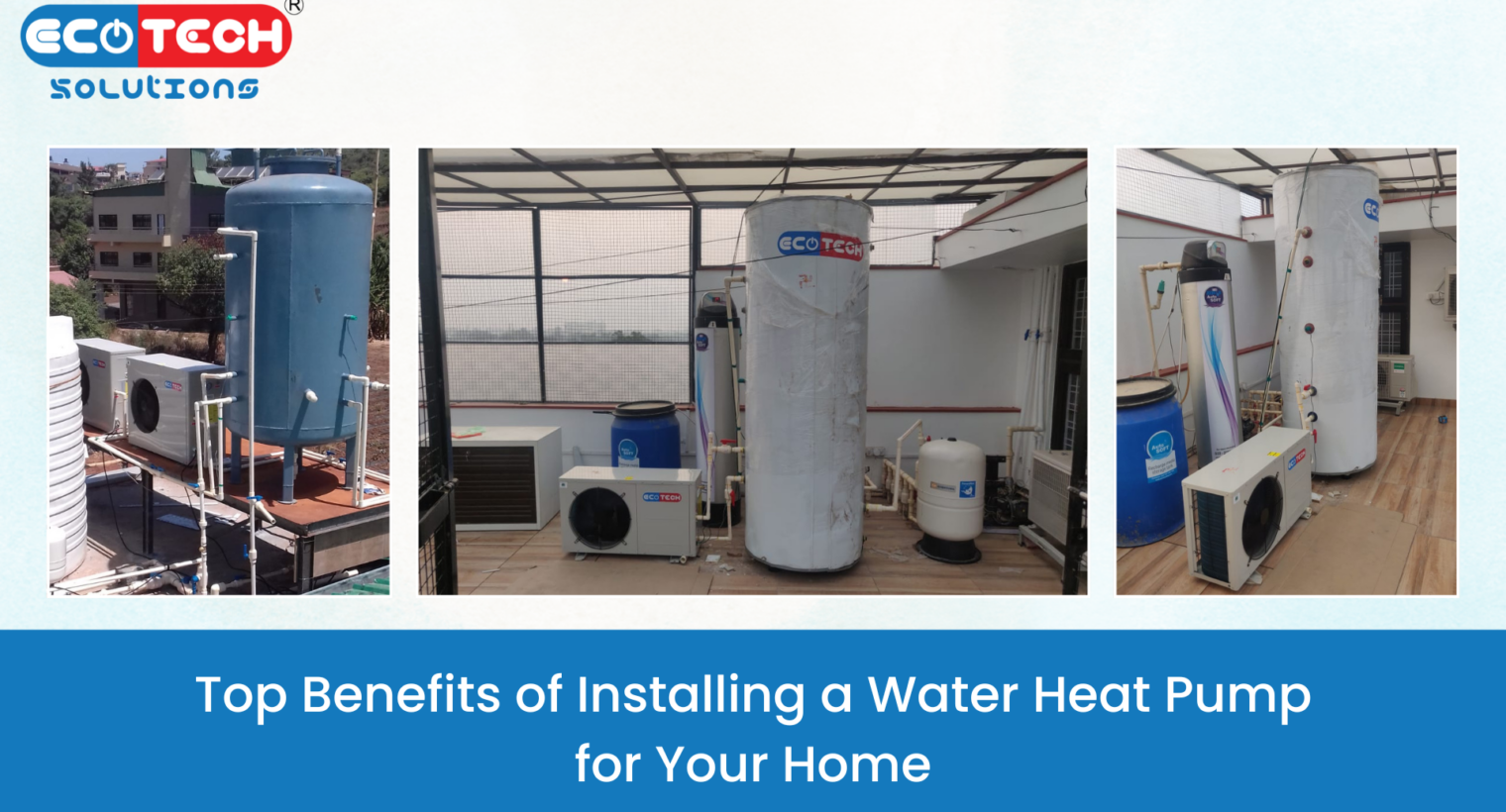A water heat pump for homes is an innovative and energy-efficient solution for heating and cooling your living space. By leveraging the heat energy stored in water sources such as groundwater, lakes, or rivers, these pumps provide a sustainable and cost-effective way to regulate indoor temperatures. As homeowners seek greener alternatives to traditional heating systems, water heat pumps for homes have gained popularity due to their efficiency, reliability, and long-term benefits.
1. Energy Efficiency and Cost Savings
One of the most significant benefits of installing a water heat pump for homes is its high energy efficiency. Unlike traditional heating systems that rely on fossil fuels, water heat pumps transfer heat rather than generate it. This process requires considerably less energy, leading to substantial savings on utility bills. Additionally, homeowners who invest in water heat pumps for solar integration can further reduce their energy expenses by utilizing renewable energy sources.
Water heat pumps operate using advanced heat exchange mechanisms, which allow them to function optimally even in cold climates. The efficiency of these systems is measured by the Coefficient of Performance (COP), with most water heat pumps boasting a COP of 3 to 5, meaning they produce three to five times more energy than they consume. Over time, the cost savings on heating expenses make these pumps a financially sound investment for homeowners.
2. Eco-Friendly and Sustainable Heating Solution
Water heat pumps for homes significantly reduce carbon emissions, making them an environmentally friendly alternative to conventional heating methods. By using natural water sources as a heat exchange medium, these systems minimize reliance on non-renewable energy sources and contribute to a greener planet. Pairing a water heat pump with solar panels further enhances sustainability and reduces the overall carbon footprint.
Many homeowners are looking for ways to decrease their environmental impact, and installing a water heat pump aligns with sustainability goals. Unlike gas or oil-based heating systems, water heat pumps do not release harmful emissions into the air, improving overall air quality. Additionally, these systems require less energy from fossil fuel-powered grids, reducing overall dependence on non-renewable energy.
3. Consistent and Reliable Heating Performance
Unlike air-source heat pumps, which can lose efficiency in extreme weather conditions, water heat pumps for homes offer a more stable and reliable performance throughout the year. Since water temperatures remain relatively constant compared to air temperatures, these pumps can maintain their efficiency regardless of seasonal changes. This ensures a comfortable indoor climate regardless of external weather fluctuations.
A common challenge with traditional heating systems is their inefficiency in freezing temperatures, which often leads to increased energy consumption. However, water heat pumps extract heat from water sources, which tend to have a consistent temperature year-round. This ensures that even during winter, homeowners can rely on their heat pump for a stable and warm indoor environment.
4. Versatility in Applications
Water heat pumps can be adapted for various applications, making them suitable for different home heating needs. Some of the key uses include:
- Water Pressure Heat Pumps for Homes: These systems enhance water pressure while providing efficient heating.
- Water Heat Pump for Drainage: Used to recover heat from wastewater, reducing energy wastage.
- Mini Water Heat Pump for Home Use: Ideal for small households or specific areas requiring localized heating solutions.
- Water Heat Pumps for Solar Systems: Can be integrated with solar panels to maximize energy efficiency.
- Water Heat Pump for Can Heating Applications: Can be used in specific industrial or home applications where water heating for storage or processing is required.
This versatility makes water heat pumps an ideal choice for homeowners looking to tailor their heating solutions to their specific needs.
5. Reduced Maintenance Costs and Longevity
Water heat pumps for homes have fewer moving parts than traditional heating systems, reducing wear and tear over time. With proper maintenance, these systems can last up to 20-25 years, making them a cost-effective long-term investment. Additionally, because they operate with lower combustion-related risks, they require less frequent servicing compared to gas or oil-based heating systems.
Most homeowners worry about the maintenance costs associated with heating systems, but water heat pumps require minimal upkeep. Routine checks, such as ensuring proper water flow and cleaning filters, are usually sufficient to maintain optimal performance. Moreover, these systems are designed with durability in mind, further reducing the chances of unexpected breakdowns and costly repairs.
6. Compatibility with Other Renewable Energy Systems
Homeowners looking to maximize their energy savings and sustainability efforts can integrate water heat pumps with solar energy systems. Water heat pumps for solar applications allow homeowners to utilize both solar and geothermal energy for an ultra-efficient heating solution. This synergy ensures reduced dependency on grid power and maximized renewable energy utilization.
For those looking to transition toward a fully renewable energy-powered home, the combination of a water heat pump and solar panels offers an excellent solution. Solar panels generate electricity to power the heat pump, ensuring that minimal grid electricity is used. This results in significant long-term energy savings and helps homeowners achieve near-zero energy consumption.
7. Improved Indoor Air Quality and Comfort
Traditional heating systems, especially those relying on combustion, can contribute to indoor air pollution. Water heat pumps eliminate the need for combustion, resulting in cleaner indoor air and improved overall health for household members. Additionally, they provide consistent and even heating, avoiding hot or cold spots commonly experienced with other heating systems.
Since water heat pumps do not rely on burning fuel, they do not release pollutants such as carbon monoxide, nitrogen oxides, or sulfur dioxide. This means that indoor air remains free from harmful emissions that could lead to respiratory issues, allergies, and other health concerns. Furthermore, the even distribution of heat ensures that every room in the house maintains a comfortable temperature.
8. Government Incentives and Rebates
Many governments and local authorities offer incentives, rebates, and tax credits for installing energy-efficient heating systems like water heat pumps. Homeowners can take advantage of these programs to reduce the initial installation costs and enhance the financial viability of their investment.
For instance, many countries provide subsidies to encourage homeowners to switch to renewable energy-based heating solutions. Some programs even offer grants or low-interest financing to help homeowners transition to water heat pumps. Checking with local energy authorities can provide insight into the available incentives and how they can offset installation costs.
9. Enhanced Home Value
Installing a water heat pump for homes can also increase the overall value of your property. As more buyers look for energy-efficient and eco-friendly homes, having a water heat pump installed can make your property more attractive in the real estate market. Energy-efficient homes often have higher resale values and appeal to environmentally conscious buyers.
Real estate experts predict that as energy costs continue to rise, homes equipped with energy-efficient heating solutions like water heat pumps will become even more desirable. This means that homeowners can not only enjoy immediate savings on their energy bills but also benefit from increased property value in the long run.
Conclusion
Investing in a water heat pump for homes provides numerous benefits, from energy efficiency and cost savings to sustainability and reliability. Whether you’re looking for a full home heating solution or a mini water heat pump for home use, these systems offer a long-lasting and environmentally friendly alternative to traditional heating methods. As technology advances and homeowners continue to seek energy-efficient solutions, water heat pumps will play a crucial role in shaping the future of home heating systems.
By considering factors such as energy efficiency, environmental impact, government incentives, and long-term cost savings, homeowners can make informed decisions about incorporating water heat pumps into their homes. As we move toward a more sustainable future, water heat pumps will remain an essential component of eco-friendly and cost-effective home heating solutions.


